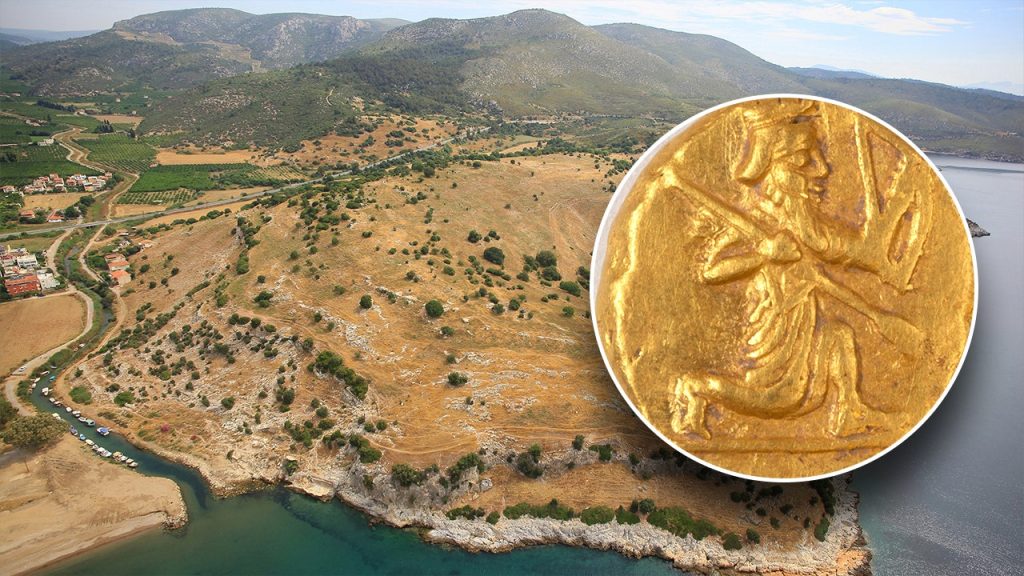A team of researchers led by University of Michigan archaeologist Christopher Ratté discovered a hoard of gold coins dating back to the fifth century B.C. in the ancient Greek city of Notion in western Turkey. The Turkish Ministry of Culture and Tourism recently gave permission for the discovery to be made public. The coins display a kneeling archer, a design characteristic of the Persian daric, which was distributed by the Persian Empire and likely produced at Sardis, a location near Notion. The team is excited about the discovery as it helps to improve the chronological timeline of the Persian daric and provides insight into its history.
The slight design variations between the coins found at Notion suggest they were made during the late fifth century B.C. until the conquest of the Persian Empire by Alexander the Great in 330 B.C. The coins found at the site were accompanied by other artifacts like pottery fragments which will help in dating the hoard accurately. Historians believe that these coins were used to pay mercenary troops, with each daric being equal to a month’s pay for a soldier as mentioned by the Greek historian Xenophon. The exact circumstances that led to the hoard being left behind are unknown, but theories suggest an extreme sense of urgency or the inability to retrieve the coins back.
Unfortunately, looters often get to ancient treasures before archaeologists can excavate them, leaving behind a lack of contextual information about the find. However, the discovery of the gold coins in Notion provided valuable information to researchers as they were found in a controlled archaeological excavation. The hoard was discovered in a corner of a room, suggesting it was stored there for safekeeping but never recovered for unknown reasons. Events such as military conflicts between Persian sympathizers and Greek mercenaries in Notion, as well as the naval battle between Athens and Sparta in 406 B.C., could explain why the hoard was abandoned.
The team is currently studying the coins at the Ephesus Archaeological Museum in Turkey to learn more about their origins and history. Ratté believes that the discovery of the hoard at Notion is a rare find, as valuable coins like these are not usually buried without the intention of retrieving them. The hoard could shed light on the economic and military activities of the ancient Greek city, as well as provide insights into the politics and conflicts of the time. The discovery has the potential to enhance our understanding of the ancient world and how societies interacted with valuable items like gold coins.




